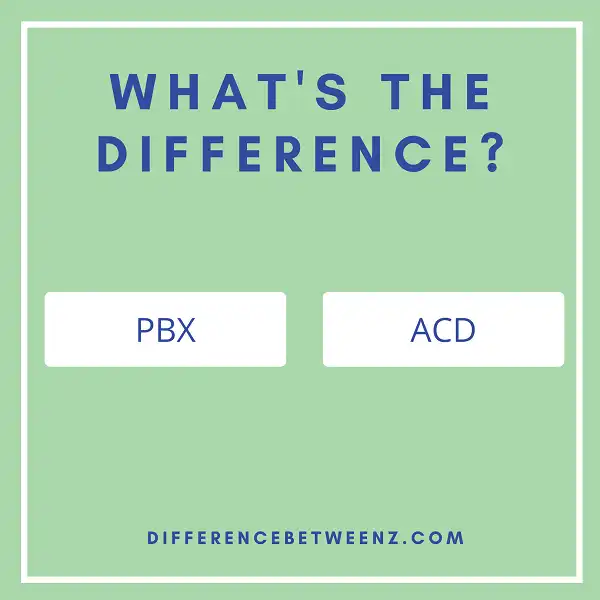When it comes to telephone systems, there are two main types: Private Branch Exchange (PBX) and Automatic Call Distribution (ACD). Both systems have their own benefits and drawbacks, so it can be difficult to decide which is the best option for your business. In this blog post, we will compare and contrast PBX and ACD systems, so that you can make an informed decision about which type of system is right for you. Stay tuned!
What is PBX?
PBX or private branch exchange is a telephone system within a company or organization that allows communications between different users on different terminals. PBX systems were originally analog but have since been replaced by digital PBX systems. PBX systems route calls made between PBX extension phone numbers and public phone numbers. PBX systems offer many features such as call hold, call transfer, caller ID, voicemail, and call waiting. PBX systems can be very complex, but they are an essential part of any business.
What is ACD?
ACD or automatic call distribution is a telephone system feature that distributes incoming calls evenly among a group of call center agents. ACD systems are commonly used in contact centers and help to ensure that each caller receives prompt, efficient service. ACD systems work by routing calls to the next available agent, based on factors such as skillset and call volume.
Incoming calls are typically queued until an agent is available to take the call. ACD systems can also provide valuable data regarding call volume and wait times, allowing contact centers to optimize their operations. Overall, ACD automatic call distribution is a helpful tool that can improve the efficiency of any call center.
Difference between PBX and ACD
PBXs and ACDs are two types of systems that are used to manage phone calls within an organization.
- PBXs, or private branch exchanges, are on-premises systems that use physical infrastructure to route calls.
- ACDs, or automatic call distributors, are cloud-based systems that use computer algorithms to route calls.
- PBXs are typically more expensive to install and maintain than ACDs, but they offer more features and flexibility.
- ACDs are less expensive and easier to set up, but they may not offer as many features as PBXs.
PBXs and ACDs both have their advantages and disadvantages, so it is important to choose the system that is right for your organization’s needs.
Conclusion
PBX and ACD are both important tools for businesses, but they serve different purposes. PBX systems are used to manage internal phone calls within a company, while ACD systems distribute incoming customer calls to the appropriate department or representative. If you’re unsure which system is best for your business, our team can help you decide and set up the system that will work best for you.


